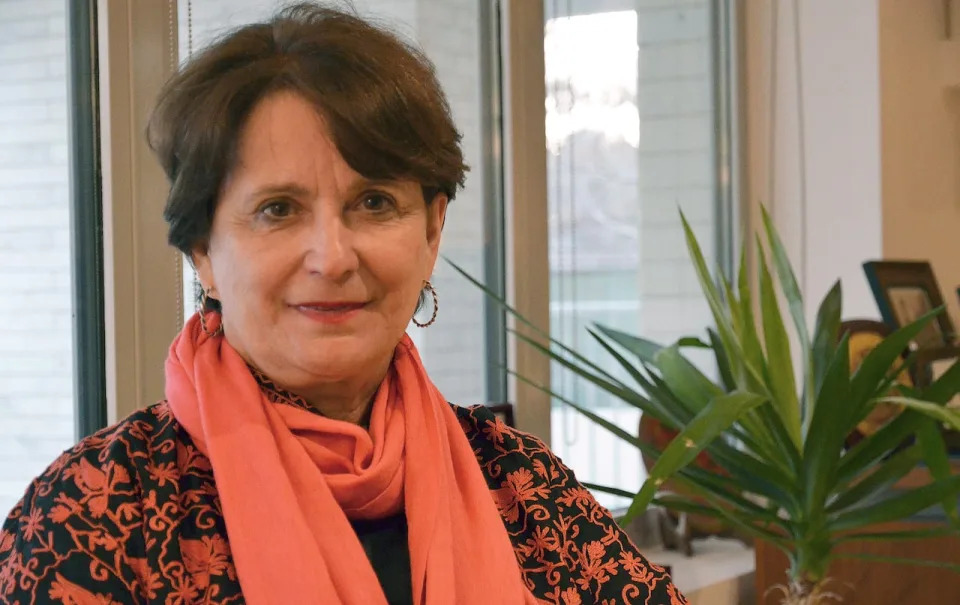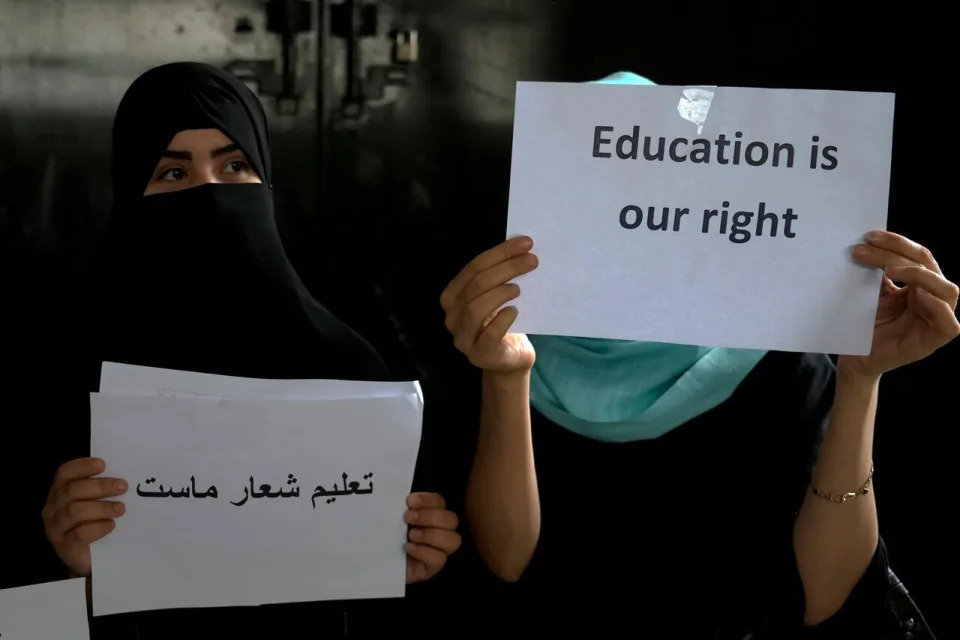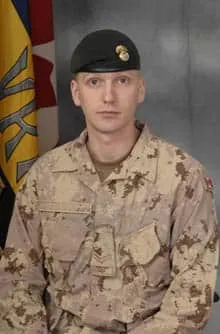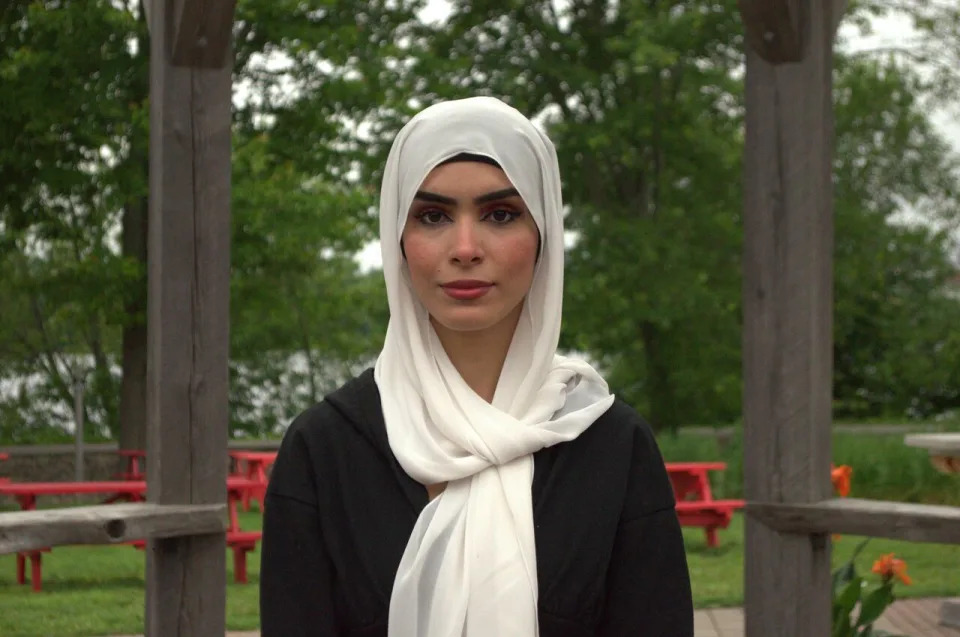CBC
Sun, October 1, 2023

Deborah Lyons, a former Canadian ambassador to Afghanistan and Israel, says 'very troubling' things have been happening in the two years since the Taliban reseized control. (Murray Brewster/The Canadian Press - image credit)
More than two years after the United States military withdrew from Afghanistan, a diplomat hailing from Miramichi and a newcomer to Fredericton from Kabul are pleading with Canadians to bolster support for the country.
But hopes are dimming among other interested observers, including a New Brunswick father who lost his son in the fighting.
"It's a struggle to find our way forward, but we have to keep at it," said Deborah Lyons, former Canadian ambassador to Afghanistan and Israel.
"The Afghanistan story is not over. … It's a difficult chapter, but we all have to stay very engaged."

Afghan girls hold an illegal protest to demand the right to education in a private home in Kabul, Afghanistan on Aug. 2, 2022. For most teenage girls in Afghanistan, it’s been a year since they set foot in a classroom. With no sign the ruling Taliban will allow them back to school, some girls and parents are trying to find ways to keep education from stalling for a generation of young women.More
Afghan girls hold an illegal protest to demand the right to education in a private home in Kabul in August 2022. (Ebrahim Noroozi/The Associated Press)
Lyons served as Canada's ambassador to Afghanistan from 2013 to 2016 and as special representative of the secretary general of the United Nations for Afghanistan from 2020 to 2022.
"Very troubling" things have happened since the Taliban retook control, she said.
The situation for women is "just desperate."
"Afghanistan is the only country in the world that doesn't allow girls to get an education," she said, and recently, 60,000 Afghan women lost their jobs when the Taliban government disallowed beauty parlours.
The Afghanistan story is not over.… It's a difficult chapter, but we all have to stay very engaged. — Deborah Lyons, former Canadian ambassador to Afghanistan and Israel
Certain ethnic groups are also being excluded from society and the economy, said Lyons, and reprisals have reportedly been taking place against former government and military officials, even though the Taliban pledged this wouldn't happen.
"It's not a situation that any of us wanted to see in the 20 years of hard work by so many members of the international community," she said, adding it's not what many people in Afghanistan were hoping for either.
People are frustrated, she said, and that includes, "citizens of the countries that supported Afghanistan, that sent their people there to fight, in some cases, sadly, to die."

Cpl. Christopher P. Stannix of Halifax-based Princess Louise Fusiliers also died in the bombing.
Christopher Stannix, 24, a reservist with the Princess Louise Fusiliers, was one of six Canadian soldiers killed on Easter Sunday 2007, when their armoured vehicle struck a roadside bomb near Kandahar City. ((DND))
Nevertheless, Lyons believes it's important for Canada and other countries to keep sending assistance to Afghanistan for basics like food, shelter and medicine, and she believes it's necessary to engage with the Taliban "to find a way forward."
"You can meet with them, work with them, talk to them, try to find ways to bring about middle ground that will help the Afghan people," she said.
"That's what we're all striving for."
The Organisation of Islamic Cooperation also "desperately" wants to see the situation in Afghanistan change, she said, and Canada's ambassadors in the region could play a large role in finding ways to intervene constructively.
New ways to support Afghanistan could be presented this fall, she said, when Afghanistan's neighbour countries meet in Russia, a conference on supporting Afghan women is held in Montreal and a special report on Afghanistan is delivered to the UN.
The whole world community is appalled and frustrated with Afghanistan and by the "abhorrent" actions the Taliban have taken, said Ken Stannix of McAdam.
Stannix served 32 years in the Royal Canadian Air Force, retiring as a lieutenant-colonel. His 24-year-old son Christopher was one of six Canadian soldiers killed on Easter Sunday 2007, when their armoured vehicle struck a roadside bomb near Kandahar City.

McAdam Mayor Ken Stannix says about two thirds of the affected workers live in the village.
McAdam Mayor Ken Stannix's son died while serving with the Canadian military in Afghanistan 16 years ago. (Shane Fowler/CBC)
"It's very difficult that we spent so much there to see it backslide," he said.
But Stannix finds it difficult to imagine Canada could exert much influence at this point.
"I think they had the opportunity to change, they had the military strength to make that change, but the Taliban still had support within the community," he said.
"They've clearly demonstrated that they're adamantly opposed to western culture, Western ideas."
Stannix is in favour of supporting Afghan women, disadvantaged ethnic groups and those who want stronger democratic institutions, but he's wary of sending financial resources.
"Are they going to use that money or aid you might be giving them to spread the agenda of the Taliban?"

Lima Samim and several sisters are newcomers to Fredericton from Afghanistan. She says Canada could help Afghan women by providing educational opportunities.
(Jacob Moore/CBC)
Lima Samim is part of a family of nine that moved to Canada from Afghanistan in August 2021, two days before the Taliban took over. She now lives in Fredericton with her four sisters.
No. of Afghans arrived in N.B. since August 2021, Government of Canada Bathurst35Fredericton200Moncton145Saint John215Total595
She still keeps in touch with other family and friends in her home country.
"Now women in Afghanistan don't have any rights," she said. "Some of them cannot even go outside.
"Of course I want support for them."
Samim is confident many women in Afghanistan want the same. There are women who oppose the Taliban, she said, at great personal risk.
Online education may be one of the best ways to help, she said.
If one woman in Afghanistan studies, she can share that knowledge with 10 or a 100 others, said Samim.
There are not many job opportunities for men in Afghanistan these days either, she said, and this heightens the need for humanitarian assistance.
But Samim shared Stannix's apprehension about money intended for humanitarian aid potentially being misused.
In her view, the key would be to find people in Afghanistan who are not affiliated with the Taliban and who are simply working to help people and use them to deliver aid.
Lima Samim is part of a family of nine that moved to Canada from Afghanistan in August 2021, two days before the Taliban took over. She now lives in Fredericton with her four sisters.
No. of Afghans arrived in N.B. since August 2021, Government of Canada Bathurst35Fredericton200Moncton145Saint John215Total595
She still keeps in touch with other family and friends in her home country.
"Now women in Afghanistan don't have any rights," she said. "Some of them cannot even go outside.
"Of course I want support for them."
Samim is confident many women in Afghanistan want the same. There are women who oppose the Taliban, she said, at great personal risk.
Online education may be one of the best ways to help, she said.
If one woman in Afghanistan studies, she can share that knowledge with 10 or a 100 others, said Samim.
There are not many job opportunities for men in Afghanistan these days either, she said, and this heightens the need for humanitarian assistance.
But Samim shared Stannix's apprehension about money intended for humanitarian aid potentially being misused.
In her view, the key would be to find people in Afghanistan who are not affiliated with the Taliban and who are simply working to help people and use them to deliver aid.
No comments:
Post a Comment